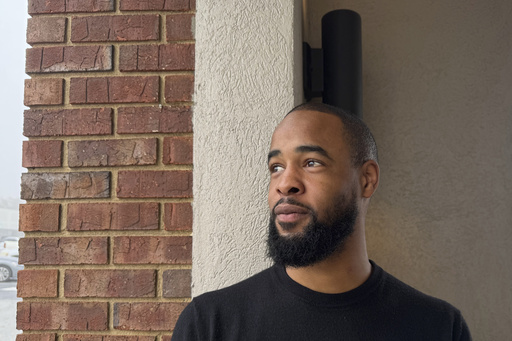ATLANTA — For a span of three years, Jamariel Hobbs was restricted to Georgia, unable to freely move or travel. Initially, a probation officer would randomly appear at his home during nighttime hours to conduct drug tests. The now 29-year-old Hobbs was one among nearly 176,000 individuals on probation in Georgia, which has the highest per capita probation population in the United States. However, his situation took a turn for the better when new legislation significantly reduced his original nine-year probation sentence to just three years.
“Probation feels like a leash,” Hobbs expressed, reflecting on his newfound freedom, “I have my future back.” Probation is often assigned for minor offenses like drug possession or petty theft, and Georgia’s laws do not impose limits on sentencing durations as many other states do. The state has continued the practice of long probation sentences for numerous years, despite evidence suggesting that the likelihood of reoffending diminishes after three years. Generally, extended probation does not seem to enhance public safety.
As Wade Askew from the Georgia Justice Project highlighted, individuals on probation frequently endure significant trauma, feeling like they are burdened by an invisible weight that can disrupt their progress with the slightest misstep. Furthermore, those under probation are typically required to pay various fees to cover the costs associated with their monitoring, which can be especially challenging for low-income individuals. Previous efforts to alleviate probation burdens had met with obstacles.
In 2017, a bipartisan legislation was enacted in Georgia aimed at reducing the number of probationers by allowing some individuals to be released early. A study by the Urban Institute suggested that this law could have enabled about one-third of the persons on felony probation to have the opportunity to shorten their terms if they maintained a clean record for three years. However, only 213 sentences with potential early termination were successfully concluded ahead of schedule, according to the Georgia Department of Community Supervision.
Multiple factors contributed to the Legislature’s ambitions falling short. Judges frequently did not incorporate early termination dates into probation sentences and commonly rejected the Department of Community Supervision’s requests for early release. In 2021, lawmakers implemented a revised law with stricter guidelines to streamline the early release process. To be eligible for this opportunity, first-time felony offenders are required to pay any outstanding restitution and refrain from being charged for any serious crimes, aside from minor traffic violations. Additionally, their probation must not have been revoked in the last two years. Judges or prosecutors retain the ability to request a hearing if they disagree with an early release.
Individuals who have served at least three years of probation can request an early conclusion to their term, even if they were initially sentenced to a longer period. Judges and attorneys are noticing positive outcomes from these changes.
As of January, Georgia’s probationary population has decreased by approximately 8% from a total of 190,475 in 2021, aligning with national trends. The Department of Community Supervision has not provided detailed figures on the early releases following the 2021 changes, but at least 26,523 sentences have ended prematurely since the new law was enacted. Although it’s possible many earlier terminations were granted for other reasons, advocates like Askew view this as substantial progress.
Despite these advancements, some defense attorneys and advocates argue that eligible individuals still encounter challenges in having their circumstances addressed by probation officers. Others report facing judges and prosecutors who are resistant to the new laws. “To get anything accomplished, you really have to be persistent,” stated Devin Rafus, an Atlanta defense attorney.
Hobbs, however, was fortunate to have a supportive judge. After obtaining a degree in Japanese from Emory University in 2019, his career path seemed on course as he landed a sales position covering the Southern states. Unfortunately, the pandemic adversely affected his mental well-being. Following his involvement in a family dispute in 2020, he was charged with aggravated assault.
After being released on bail, he struggled with temporary housing, lost his job, and his company vehicle. In December 2021, he received a sentence of one year in jail and nine years of probation. However, he was able to avoid incarceration by joining Georgia’s Accountability Court Program for mental health and substance abuse, where he was diagnosed with bipolar disorder and started on appropriate medication.
Hobbs is currently employed by a biopharmaceutical company and has recently begun working as a peer outreach coordinator, assisting others recovering from mental health and substance abuse issues. Initially, he was unaware that his probation provided a pathway to early release, so it was a surprise when he received notification from Judge Layla Zon that he was off probation shortly thereafter.
Now, Hobbs is looking forward to relocating to North Carolina to benefit from a more affordable cost of living while aspiring to establish an organization aimed at supporting health and wellness. “I’m sitting here probation-free,” Hobbs remarked with a smile. “It’s a blessing.” Judge Zon echoed his sentiments, reflecting on the rewarding aspects of her role as a judge in recognizing individuals for their achievements and compliance.


